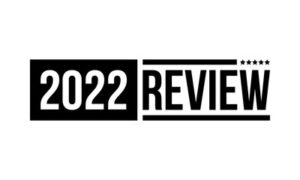Investing is complicated. You need an advisor to help you understand all the terms that you have no idea what they mean. EPS, EBITDA, ETF, Ex-Dividend, FAANG, Large Cap, Mid Cap, Small Cap, etc. And when he has you convinced that he is better equipped to manage your money you hand it over and let him invest it for you.
But it really is not that complicated. There are some advisors that are not just selling products that their employer offers but will offer advice on a fee for service basis. But why pay anyone when you can do it yourself. All you need is a reliable source for your investment advice. That can be a newsletter, a friend with this kind of experience, or a blog. There are many blogs out there that will tell you everything that you want to know about investing and information about individual stocks or Exchange Traded Funds. (ETF) The problem with a lot of these blogs is that they want to make money with them. So, there is way more being written then necessary just to get hits on their web page. But There is good information out there. When you find one that makes sense to you try finding more articles on the subjects you are interested in. One way to start investing that I really like for a beginner is the Beat the TSX formula. (BTSX) You can find it here http://dividendstrategy.ca/
But what matters most if you want to be an investor is getting started. And that should not be difficult. Open a self-directed trading account with one of the mayor banks, Questrade, or WealthSimple. This can be an RRSP, TFSA, or non-registered account. Which one to use is another discussion. Just start with something.
I have a bias toward dividends and most of my posts talk about this type of investing. For those that are hesitant to start because they think they do not know enough about investing, start with one company. In my biased opinion you cannot go wrong with a Canadian Bank. (This is a Canadian blog) These banks have paid dividends for over a hundred years and have increased them frequently. This year we could see an increase of 13% said a Financial Post article on July 6, 2021. That is because during the pandemic the banks were not allowed to increase dividends or buy back share. That order should be lifted later this year. And with all the accumulated capital during this time this is not an unreasonable expectation. Then when you see your first dividends appear in your account, you will see how good that feels when there is regular income without you doing anything. When you have enough funds, you buy another company. And as you build you learn.
ESG Investments – Environmental, social, and corporate governance. Choosing companies to invest in who’s way of operating you agree with. This apparently is attracting many investors and big investment dealers are taking full advantage. This is a feel-good approach, but does it really achieve anything? How much research is required to know all about a company’s operations? What practices are acceptable, and which are not? Some industries may be excluded like fossil fuels, but is mining, ok? When buying ETF’s, (Exchange traded funds) what are its holdings?
Investors want to make money. It seems to me that it is much easier to buy individual companies in the sectors you understand and approve of. And collect the dividends and move on.
Dividends vs Growth – I see a lot written about how much we miss when we only concentrate on dividends. There is truth to that. A company that re-invests all is profits can grow the share price faster than one that must pay a dividend. For a retiree who needs income this just means that he must sell shares to create that income. That is not a problem. But if you must sell in a down market, it could deplete your portfolio faster. Whereas if dividends are your income, you never have to sell shares. So, the price does not really matter if your holding solid companies. But for dividend only investors you may need a larger portfolio. This is fine if you have reasons to pass on your holdings when you no longer need them. If not, then selling shares is not a problem. Spend the last dollar before you die.
But even a dividend investor may want to have some strictly growth stocks. When you find a good company then buy it. Amazon, Google, Shopify, come to mind.
The bottom line should be that you have a plan of how you want to invest and then stick to it. 70% dividends, 30% growth, or any other combination that works for you.
Bank Dividends – When it comes to dividend investing in Canada, banks are the first that come to mind. Canadian banks have paid continuous dividends for well over a 100 year and keep increasing them. The last year and a half we have had no increases due to the restrictions put on them during the Covid crisis. Their capital has increased to the level that some prognosticators now think that we could see a 13% increase in bank dividends later this year when these restrictions are lifted.
Sector Diversification and Rebalancing – I have written about this before. To be diversified you do not need to be in every sector. For our investing I try to not be in sectors that are cyclical. Oil & Gas, mining, minerals, are some we are not in. The exception here is pipelines. Pipelines transport a commodity that is not going to eliminated any time soon. For us it is mostly financials, utilities, telcos, some Reits, Pharmaceuticals, Household Goods, Tech, and some miscellaneous other companies.
As to re-balancing, why? We are 100% equities. When you have the companies, you want there is nothing to re-balance. Collect the dividends for income, and watch the portfolio grow.
New Investors – Getting Started. Just Do It, is a famous slogan by some famous shoe company. That is so true also for investing. Just go and buy your first company shares. The learning comes as you see your dividends come in and the share price rises or falls. But with patience and time this is way better than waiting because you think it is too complicated.
You may not agree with my way of investing and that is fine. Everyone must find their comfort level. Please leave a comment and let me know what you think.



